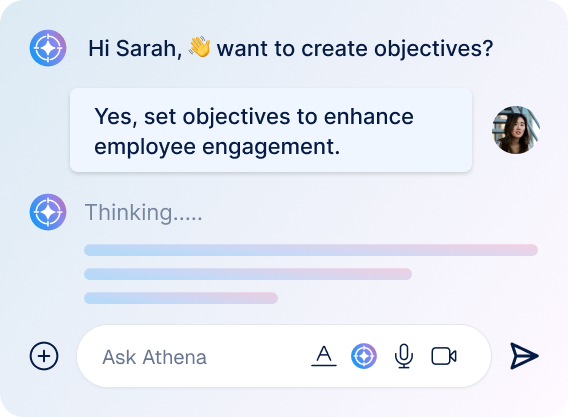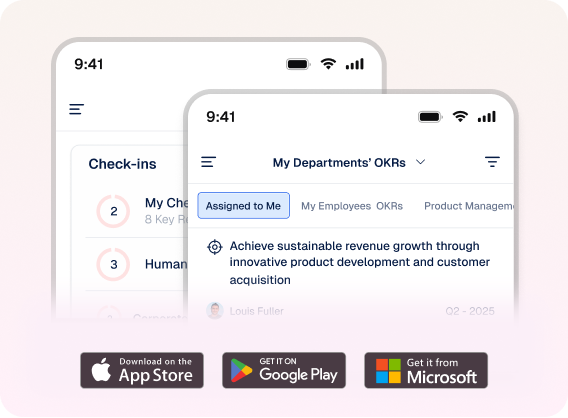Introduction
As we approach 2025, the Human Resources (HR) landscape continues to evolve, driven by technological advancements, changing workforce dynamics, and emerging business challenges. We have to make sure that we understand that the world of work is undergoing rapid and profound changes, driven by technological advancements, demographic shifts, environmental challenges, and social movements. These changes pose new opportunities and threats for organizations and their human resources (HR) functions. How can HR professionals and leaders prepare for the future and ensure that their organizations are resilient, agile, and competitive? Understanding the key trends and Key Performance Indicators (KPIs) in HR is crucial for organizations aiming to stay competitive and manage their talent effectively. In this article, we are excited to guide you through the process of building a successful team in 2025, leveraging the most recent advancements and trends in the field of human resources management.“It’s not a faith in technology. It’s faith in people.”
Emerging HR Trends for 2025
Heading into 2025, it’s crucial for #HR experts to proactively engage with emerging trends and adapt their strategies to effectively steward their organization’s most crucial resource which is the workforce and management, let’s see how to cope up with the challenges with the list of emerging HR trends that would help you shape your 2025 goals strategically successful.Artificial Intelligence at the Forefront
AI is transforming HR operations, from automating routine tasks to providing advanced analytics for better decision-making. In 2025, AI is set to significantly change HR operations, building on its existing trajectory. The role of AI in HR carries the possibility of dramatic improvements, ushering in a future where efficiency and decision-making are optimized to unprecedented levels role in recruitment, and employee engagement, as performance management is becoming more prominent and sophisticated.Adapting to Hybrid Work Models
Adapting to hybrid work models in 2025 requires organizations to navigate several crucial aspects. Financially, businesses can benefit from reduced overheads due to a lesser need for large office spaces, while employees might save on commuting and work-related costs, albeit potentially facing increased home expenses. Reimagining physical spaces is also key, with traditional office setups making way for collaboration-focused areas and companies reassessing their real estate needs to leverage new talent pools. Managing human needs is crucial, ensuring productivity and connection in remote settings while addressing challenges in work-life balance and colleague connectivity. Leadership and communication are vital in this transition, with transparent guidance enhancing employee well-being, support, inclusion, and productivity.Employee Wellbeing and Mental Health
The year 2025 will mark a significant shift from viewing these aspects as mere adjuncts to essential pillars of workplace strategy. Companies are anticipated to integrate holistic approaches that go beyond physical health, encompassing emotional, financial, and even spiritual well-being. This holistic view recognizes that a genuinely healthy employee thrives in all life areas. The focus on mental health is set to deepen, with strategies covering everything from improved access to mental health resources to initiatives aimed at destigmatizing mental health discussions in the workplace. Additionally, adopting flexible work arrangements, emphasis on inclusive wellness programs, and compassionate leadership styles are likely to be key trends. These methods aim to create a supportive and nurturing work environment, where employees not only feel valued but are also encouraged to prioritize their well-being, ensuring a more engaged and productive workforce. The integration of technology, especially AI, in wellness programs, is another trend, offering personalized well-being recommendations and mental health support, further revolutionizing the employee wellness landscape.Diversity, Equity, and Inclusion (DEI) Initiatives
In 2025, Diversity, Equity, and Inclusion (DEI) initiatives are expected to evolve significantly, transitioning from traditional compliance-driven approaches to becoming integral parts of organizational culture and strategy. The focus is shifting towards creating genuinely inclusive environments where diversity is not only welcomed but celebrated as a key driver of innovation and growth. Companies are likely to adopt more comprehensive DEI policies that go beyond mere workforce diversity, emphasizing equity in opportunities and fostering a sense of belonging among all employees. This includes targeted efforts to eliminate unconscious biases in hiring and promotion processes, as well as ensuring equitable access to resources and professional development opportunities.
Upskilling and Reskilling
In 2025, upskilling and reskilling are poised to be key drivers in workforce development, responding to rapid technological changes and evolving job requirements. The focus is shifting towards a skills-based learning and development approach, emphasizing the practical application of new competencies, especially in response to advancements in technology and artificial intelligence. Upskilling, which enhances an employee’s proficiency in their current role, and reskilling, which prepares employees for new roles within the organization, are both critical for maintaining a competitive, agile, and adaptable workforce. Custom eLearning development is emerging as a significant trend, offering personalized learning experiences built with an eLearning authoring tool tailored to individual strengths, preferences, and learning styles. Moreover, the integration of Learning Experience Platforms (LXPs) and data-driven learning strategies is enhancing the delivery of targeted, effective training programs. The incorporation of generative AI into the workplace is also revolutionizing the L&D landscape, augmenting employee capabilities and altering the nature of required skills. Overall, upskilling and reskilling in 2025 are about fostering continuous learning, adaptability, and resilience in the face of ongoing industry transformations.Stay Ahead in 2025 and Explore Cutting-Edge HR Trends and Key Metrics
Key HR KPIs for 2025
In 2025, HR professionals will need to focus on a range of Key Performance Indicators (KPIs) to effectively manage and adapt to the evolving workplace dynamics. Here are some of the key HR KPIs that are expected to be crucial in 2025.| HR KPIs for 2025 | Measures what? |
|---|---|
| AI Adoption and Impact Metrics | Effectiveness and impact of AI in HR processes |
| Employee Engagement Levels | Engagement and productivity in hybrid work models |
| Wellbeing and Mental Health Indices | Effectiveness of wellbeing initiatives on mental health and satisfaction |
| DEI Progress Indicators | Representation, inclusivity, and success of DEI initiatives |
| Learning and Development ROI | Return on investment in upskilling and reskilling initiatives |
| Training Efficiency | Effectiveness of skill development programs |
| Recruitment Efficiency | Efficiency of the recruitment process (time-to-hire, cost-per-hire) |
| Diversity and Inclusion Index | Representation and inclusion of diverse groups |
| Performance Management Effectiveness | Effectiveness of performance management systems |
Assessing KPI through OKRs Framework in 2025
Assessing KPI through OKRs Framework in 2025 is a way of measuring the performance and impact of your key initiatives and projects using the OKR methodology. OKRs are a goal-setting framework that helps you define your objectives (what you want to achieve) and your key results (how you will measure your progress). OKRs can help you align your KPIs with your strategic goals, increase transparency and accountability, and foster a culture of continuous improvement.




